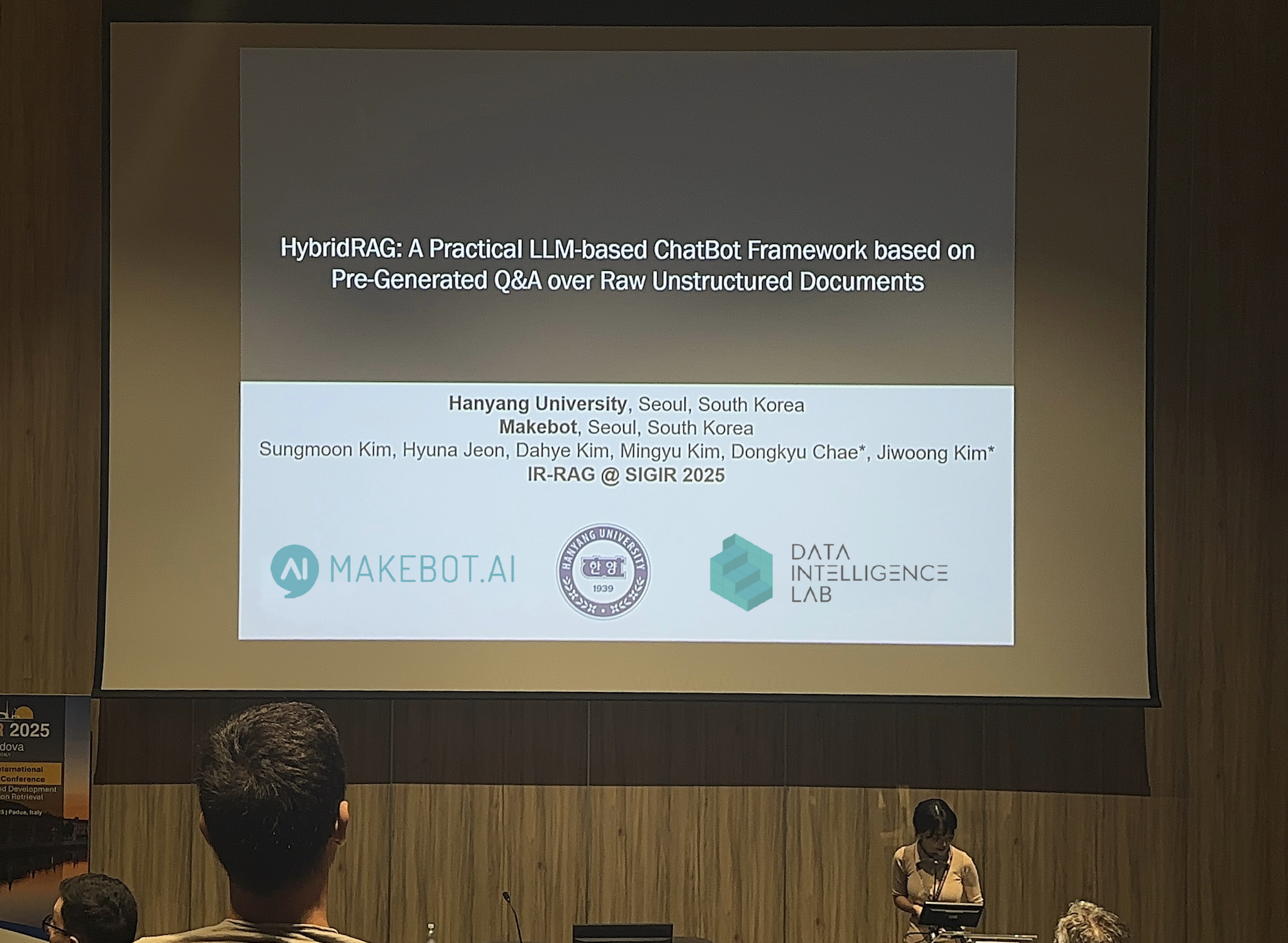AI Investment a Top Priority for Asia-Pacific Entrepreneurs, UBS Report Finds
Asia-Pacific entrepreneurs prioritize AI investments, with 66% citing its commercial potential.


A comprehensive analysis of the UBS Global Entrepreneur Report 2025 reveals that Asia-Pacific entrepreneurs are positioning artificial intelligence (AI) as a central investment priority, signaling a strategic pivot toward technology-driven growth in the region. The inaugural report surveyed 156 entrepreneurs globally, representing businesses with a combined annual revenue of approximately USD 19.1 billion.
Singapore to Develop Southeast Asia’s First Large Language Model Ecosystem. Read more here!

Key Findings on AI Investment Priorities
The UBS Report provides significant insights into how business leaders across the APAC region are approaching AI investments:
- 59% of Asia-Pacific entrepreneurs expressed optimism about their industry outlook for the next 12 months
- 45% anticipate significant or slight increases in total investments over the next year, rising to 85% over a five-year horizon
- 66% of respondents in the region identified AI as offering the greatest commercial opportunity, compared to 59% in the Americas and Europe
- 75% plan to use AI to improve productivity, exceeding the global average of 67%
- 50% of entrepreneurs in the APAC region are prepared to invest in AI infrastructure and applications
Unlike their global counterparts, Asia-Pacific entrepreneurs are prioritizing investments in strategic acquisitions and partnerships, along with AI infrastructure, applications, and models, ahead of personnel investments. This indicates a more technology-centered approach to growth compared to regions like the Americas, where personnel investment ranks as the top priority.
Investment Patterns and Strategic Focus Areas
The report highlights distinct investment priorities among Asia-Pacific entrepreneurs:
- Strategic Acquisitions and Partnerships: Ranked as the top investment area over the next 12 months
- AI Infrastructure and Applications: Second highest priority, reflecting the region's tech-forward approach
- Data Analytics and Business Intelligence: Positioned as the third most important investment area
According to the report, only 23% of companies in the APAC region plan to significantly or slightly increase their workforce in the next 12 months, compared to 52% in the Americas. This suggests a stronger focus on automation and technology-driven efficiency improvements rather than workforce expansion.
Regional Analysis: APAC Countries and Markets
According to the UBS report "Five for '25 Investing in Asia Pacific" , The APAC region demonstrates varying levels of AI readiness and investment priorities across different countries:
China
China emerges as a particularly interesting case within the APAC landscape, showing a dramatic shift toward AI-driven operations. The country ranked highest in AI vulnerability metrics according to the UBS report "Five for '25 Investing in Asia Pacific" mentioned. Chinese entrepreneurs reported significant workforce restructuring to accommodate AI integration:
- One Chinese entrepreneur noted their company had reduced its workforce by 50% in 2023 to improve efficiency through AI-driven automation
- Despite potential US tariff challenges mentioned in the UBS investment report, Chinese businesses continue to invest heavily in AI
- The economic impact of AI in China is expected to be substantial, with officials keeping the growth target at an "ambitious 5%" range, supported by strategic investments in advanced technologies
Singapore
Singapore leads the APAC region in AI maturity, with:
- The most advanced AI infrastructure and technical expertise in Southeast Asia
- Highest confidence levels in AI's potential among APAC entrepreneurs
- A strong regulatory framework for AI governance and implementation
- 63% of Singaporean retail REITs showing resilience with positive rental growth, partly attributed to AI-driven customer analytics
- Data centers in Singapore experiencing rapid growth due to AI demand, with capacity expected to double in coming years
Japan
Japan presents a complex picture within the APAC AI landscape:
- Japanese entrepreneurs show cautious optimism about AI, with growing focus on AI applications in manufacturing and robotics
- The UBS report notes that "Japanese real estate developers are benefiting from inflation and peaking vacancy rates," with AI applications in smart buildings emerging as a key trend
- Japan ranks as one of APAC's more vulnerable markets to US tariffs, which could potentially affect AI investment strategies
- Despite this vulnerability, Japanese corporations are investing in AI to improve productivity, particularly in sectors where labor shortages are acute
Taiwan
Taiwan demonstrates one of the strongest AI adoption rates in the APAC region:
- The UBS report identifies Taiwan as "Most Attractive" among APAC markets
- Taiwan's semiconductor and tech sectors account for 80% of the index weight, with AI spending driving strong earnings growth projected at 16% and 10% in 2025 and 2026, respectively
- AI-related capacity expansions are substantial, with Chip on Wafer on Substrate (CoWoS) capacity, a packaging process needed for AI chips, set to double in 2025 after tripling in 2024
- Taiwan maintains non-substitutable leading-edge chip supply chain capabilities essential for AI development
- Taiwan is heavily defended by its non-substitutable leading-edge chip supply chain despite export-oriented market exposure to tariff risks
South Korea
South Korea presents a balanced perspective on AI adoption:
- South Korean entrepreneurs face a "tug of war between positive and negative drivers" according to the UBS report
- The country's memory makers are well-placed to benefit from AI growth, with high-bandwidth memory revenue projected to rise from USD 16 billion in 2024 to USD 41 billion in 2025 (+156% y/y)
- By end-2025, high-bandwidth memory is expected to account for around 27% of the industry DRAM revenue
- Despite these benefits, South Korea remains more susceptible to global economic slowdowns and future tariffs compared to Taiwan
India
India represents a fast-growing AI market within the APAC region:
- The UBS report ranks India "among the least susceptible to US tariffs" making it an attractive destination for AI investments
- Indian entrepreneurs are focusing on AI applications that enhance domestic economic growth
- With economic growth expected to stay around trend, Indian companies anticipate earnings growth to accelerate to around 17% in FY25 from 9% in FY24
- India's burgeoning tech sector and large talent pool provide substantial advantages for AI development and implementation
Australia and New Zealand
According to complementary data from Lenovo's CIO Playbook 2025:
- Organizations in Australia and New Zealand are increasing AI spending fourfold
- 58% of organizations are either evaluating or planning to implement AI within the next 12 months
- IT operations remain the top use case for AI in this region, with additional focus on sales and finance applications
- 37% of CIOs in Australia and New Zealand are actively leveraging professional AI services compared to 34% in the broader APAC region
- 66% are using hybrid or on-premises infrastructure for AI deployments, slightly higher than the APAC average of 65%
- The Australian equity market appears "well positioned in the event of escalating trade tensions," potentially creating a stable environment for AI investments
Southeast Asia (ASEAN+1)
Entrepreneurs in Southeast Asian markets show distinctive patterns:
- Increasing AI investments by 2.7x, somewhat lower than the broader APAC average of 3.3x
- 47% of organizations are in the early stages of AI adoption
- Customer service emerges as the leading use case for AI implementation
- Thailand and Indonesia are identified as more vulnerable to trade tensions, which could affect AI investment strategies
- Malaysia shows acceleration in foreign direct investments and build-up of data centers, creating favorable conditions for AI infrastructure development
- The UBS report specifically notes that Malaysia outperformed the Asia Pacific benchmark by around 4 percentage points in 2024, with "beneficiaries of the data center build-out, including construction and energy providers" being preferred investment areas
Forrester Predicts AI Shifts for Asia-Pacific by 2025: A Transformative Year for AI Adoption. Read more here!
Technology Focus Areas Beyond AI
While AI dominates the technology agenda, Asia-Pacific entrepreneurs also expressed strong interest in complementary technologies:
- Blockchain: Identified as a promising technology with significant growth potential, particularly in financial services and supply chain management across the APAC region
- Big Data Analytics: Approximately 44% of respondents from the region saw substantial growth opportunities in this field, similar to sentiment in the Americas
- Generative AI: Expected to command 42% of AI implementation spending in the APAC region by 2025, according to supplementary industry data
Generative AI applications are gaining particular momentum in the region, with entrepreneurs identifying multiple high-value use cases:
- Content creation and optimization
- Product design and innovation
- Process automation and efficiency
- Customer service and engagement
- Predictive analytics and forecasting
The UBS report indicates that Generative AI is set to transform enterprise workflows across the APAC region, with implementation spending expected to increase significantly by 2025. The technology is viewed as a key enabler for productivity improvements and competitive differentiation, particularly in economies with higher labor costs.
Infrastructure Preferences for AI Deployment
A significant 65% of organizations in the APAC region are opting for on-premise or hybrid solutions to power AI workloads, with only 19% relying exclusively on public cloud services. This preference reflects:
- The need for secure, low-latency environments for AI applications
- Concerns about data sovereignty and compliance requirements
- Desire for greater operational flexibility and control over AI infrastructure
The report indicates that hybrid architectures are particularly favored in the APAC region as they provide both the scalability advantages of cloud solutions and the security benefits of on-premises infrastructure. This trend is consistent across most APAC countries, with Australia and New Zealand showing a slightly higher preference (66%) for hybrid or on-premises deployments.
Power and Resources Demands
The UBS report highlights significant AI-driven energy requirements across the APAC region:
- According to the International Energy Agency data cited in the report, overall electricity consumption will expand by nearly 3½% annually over the next two years
- APAC is expected to lead all global energy and power demand growth in the decade ahead, driven partly by rising demand from AI-related segments like data centers
- In Southeast Asia, data centers are experiencing particularly rapid growth due to AI applications
- The power and resources theme is identified as a key AI beneficiary, with opportunities in transmission, distribution, data centers, transport, and energy storage industries
- Essential minerals like copper, aluminum, and lithium are facing supply bottlenecks, potentially impacting AI hardware development
Challenges and Concerns
Despite the enthusiasm for AI investment, Asia-Pacific entrepreneurs identified several key challenges:
- Governance and Ethical Concerns: Only 25% of organizations in the APAC region have fully implemented AI governance, risk, and compliance policies
- ROI Uncertainty: Many entrepreneurs cited difficulty in quantifying returns on AI investments as a significant barrier
- Talent Acquisition: Securing skilled AI professionals remains challenging, particularly in emerging markets
- Political Instability: 53% of entrepreneurs globally cited this as a major concern, with similar sentiments in the APAC region
- Regulatory Changes: 46% of respondents expressed concerns about evolving industry regulations and compliance requirements
Professional Services Engagement
To address implementation challenges, 34% of CIOs in the APAC region are actively leveraging professional AI services to navigate complexities in data management, talent shortages, and cost efficiency. An additional 56% are exploring or planning to engage these services in the near future.
The reliance on professional services varies across the region:
- More mature markets like Singapore and Australia show higher engagement rates
- Emerging economies in Southeast Asia demonstrate increasing interest in professional AI services
- Chinese entrepreneurs are leveraging domestic AI expertise to drive implementation

Five-Year Outlook
Looking ahead, the UBS Report reveals that Asia-Pacific entrepreneurs expect significant transformations in their industries due to AI:
- 57% anticipate workforce growth within five years, compared to just 23% expecting growth in the next 12 months
- 85% expect significant or slight increases in total investments over a five-year horizon
- 66% are considering workforce reductions through automation, compared to the global average of 46%
New Generations Lead the GenAI Charge in Asia-Pacific Region: A 2024 Deloitte Report. Read more here!
Conclusion
The UBS Report demonstrates that Asia-Pacific entrepreneurs are taking a strategic, forward-looking approach to AI investment, prioritizing infrastructure, applications, and data analytics capabilities.
While lagging slightly behind the Americas in terms of overall optimism, the region shows a stronger technological focus in its investment priorities, particularly in AI infrastructure and strategic acquisitions.
The regional analysis reveals significant variations in AI readiness and investment priorities across APAC countries, with Taiwan, Singapore, and parts of China leading in adoption, while Southeast Asian nations are rapidly scaling their capabilities. The power demands of AI applications are driving substantial investments in energy infrastructure throughout the region.
As AI adoption continues to mature across the APAC region, the emphasis on governance, ROI measurement, and strategic implementation will likely increase. The distinct preference for hybrid infrastructure models highlights the region's pragmatic approach to balancing innovation with security and compliance considerations.
For business leaders and investors in the APAC region, the findings suggest that AI investment is no longer optional but essential for maintaining competitiveness in an increasingly technology-driven business landscape.
Power Your APAC AI Investment Strategy with Makebot
As APAC entrepreneurs make AI their top investment priority—with 66% identifying it as their greatest commercial opportunity—Makebot stands ready with enterprise-grade RAG solutions perfectly aligned with regional needs.
Our patent-protected hybrid technology reduces AI hallucinations by 70-90% while supporting the 65% of APAC organizations preferring hybrid deployments. With specialized solutions for industry leaders across Singapore, Taiwan, Korea, and emerging Southeast Asian markets, Makebot helps you join the 75% of forward-thinking APAC businesses using AI to drive productivity.
Contact us at b2b@makebot.ai or visit www.makebot.ai to discover why Korea's leading companies and over 1,000 clients trust Makebot for their AI transformation.

Studies Reveal Generative AI Enhances Physician-Patient Communication



















































_2.png)

















.jpg)




























